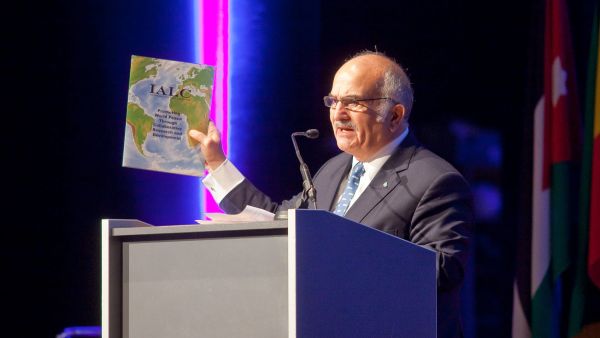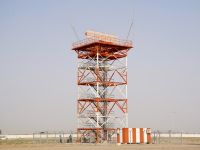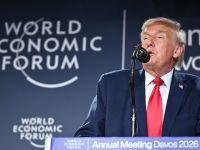Statement by Prince HRH El Hassan Bin Talal to Quraysh Institution
The so-called war on Coronavirus or COVID-19 –the struggle between lives and livelihoods as it has been called, is the defining issue of our times. I know that this must be the feeling of deep sadness of those who are bereft of their loved ones and their families and I express my compassion and empathy with all my friends and people from all over the world, whom I know or do not know, as a result of this ongoing tragedy. Alongside disease, hunger and fear stalk much of the global population.
New figures from the World Food Programme indicate that more than a quarter of a billion people will be suffering acute hunger by the end of this year, with the lives and livelihoods of many hundreds of millions more under severe threat by the time the United Nations hosts the Food Systems Summit Conference in 2021.
The Great Lockdown, as the International Monetary Fund chooses to call it, has already sent tens of millions into unemployment and driven hundreds of millions more into the vulnerability already lived by the one-and-a-half bottom billion. If this doesn’t call for a Charter of Compassion or a Universal Declaration of Vulnerability, then I don’t know what does. Beyond this all enveloping crisis, the world risks sleepwalking into all kinds of new conflicts and disasters – natural and man-made – largely driven by insecurity.
In addressing the security of Quraysh in the sura of that name in the Holy Qur’an the sura speaks of how our Creator has protected us from fear and fed us in times of want and this hunger that we speak of is not only that of food shortages to the human need for health and habitat, but also hunger for education, for a life lived in dignity, in safety and security, and in concord.
The Quakers have always spoken rightly about the consequence of war. It is easy to go to war, but what are the consequences? Who answers to all the misery and suffering left in the wake of war? How do wars end?
A few weeks ago, in the wake of one of the permanent members refusal to agree to a global ceasefire, individual members have objected according to their own agendas, I put my name into an appeal for a global conflict lockdown. They said the Security Council was in deadlock, it seemed like a double lock, deadlock and lockdown.
However, things should not be so grim as to make us cynical, the nations of our region amongst others are the peoples of Syria, Yemen, Libya, Iraq. They are not aware of this multi-layer decision making system over their lives and destinies. They are already facing humanitarian disaster, ill equipped to deal with the outbreak of a disease that threatens a loss of life but not only because it is on a scale hitherto unknown and unseen in this pandemic.
It seems that crises of insecurity are a permanent condition of our contemporary world, yet surely, in this twenty first century when we can put a man on the moon and sequence the human genome, it should not be beyond us to seek peaceful, rather than forced resolutions to conflict. Of these resolutions, we already have 20,000 or more stored by the United Nations. We have often called, for establishment of a preventive security initiative to work for pre conflict resolution rather than to attempt to manage conflicts when they do arise. The tragic accounts of the loss of life and livelihoods in the advanced economies are a stark reminder of the War on Want, as the fight against poverty, inequality and injustice in the so-called developing world was first called in the 1950s, the war that was never wholly confined to the Global South.
The capitalism that has given rise to the noxious inequalities, some call it pirate capitalism, and indignities of a neo-liberal world in which 20 percent of the global population owns the equivalent of 80 percent of the globe’s wealth, must be revisited. Every war – whether military or waged with mask and swab –inflicts intolerable costs, emotional and financial, on most of the post war generation, while simultaneously benefiting a tiny few. A new battle looms in which the goal must be to ensure as described by France’s Foreign Minister, Jean Yves Le Drian’s as he put it: "My fear is that the world afterwards will be very much like the one before, only worse." Not only will hundreds of thousands of people have 2 suffered but it will be business as usual in this world divided between material and ethical considerations.
The concern today must be that post-war policies – as in planning for a post-pandemic world – will be notable not for inclusive humanitarian strategies and good sense, but for some divisive nation first policies. As nations and states, our surrender to ad hoc politics has driven deep division, retrenchment and narrow nationalisms. We cannot continue to ignore the fact that overarching, existential truths apply to us all. Yet we are not all in it together.
The myth of COVID-19 as the great leveler must be debunked. Radical reforms, social, political and economic are needed to protect those disproportionately affected, both in terms of loss of life and of livelihoods. Prevailing policies must be reversed to reduce inequalities and build greater resilience amongst our most vulnerable and marginalized. A global paradigm shift is required. My dear friends is it not time to consider the questions of the common good, questions such as climate change, which threatens our survival as a species, and to revive multilateral cooperation or universal cooperation – to inspire a world consciousness that can address the issues of the socio-sphere and the eco-sphere, which are sometimes referred to as socio-side and eco-side.
I grew up instilled with a long tradition of altruism over several centuries of those who came before me, in terms of caring for those who suffer from hunger and want on the one side and those who need protection, particularly I mean the travelers and the migrants, specifically referred to in the context of Zakat or institutional altruism, a pillar of our faith in Islam.
The Western mind too often equates pre modern communities with uncivilized, backwater badlands in which compassion, kindness and care of the Other are absent. Yet the ethical underpinnings of those who came before us as evidenced in the core values of Quraysh, and I thank the Foundation for giving me this opportunity to do much to ensure that no-one gets left behind.
In a forthcoming study, Doctor Evelin Lindner – a medical doctor, psychologist and scholar – suggests that the pandemic presents an opportunity in the midst of suffering. The study’s title is reminiscent of the Report of the Independent Commission on International Humanitarian Issues, which asked the question (as the Cold War was coming to a close): Can we win the human race and create a warm peace in place of a cold war? The report argued that the human race is a question of our mutually assured destruction versus our mutually assured survival, and can only be won by placing human welfare, human dignity and human security at the center of interdisciplinary, trans-boundary and networked policy-making efforts. “Progress in the human field,” the report emphasised, is progress in “a field in which ideological differences, North-South problems and East-West rivalries” can be transcended.
A globalised world in which the food supply of a population rests on the exploitation of a displaced, dispossessed and undocumented migrant in a country thousands of miles away is both vulnerable and fragile. Globalisation need not condemn large swathes of people or even entire countries to vulnerability, to the dictates of a globalised class driven by the logic of accumulation and expropriation. We are more divided and polarized today and yet more dependent on one another than we were yesterday.
The fact of our interdependence says Pope John Paul II, should give rise to human solidarity, without which the human race cannot be won, nor our collective and mutually assured survival secured.
The rupturing effects of the pandemic must not simply be forgotten in a reversion to the old normal, the vulnerable relegated to dispensable victims in the dustbin of history. Whilst faith in multi-lateralism and multilateral organisations has been shaken, let us remember that the United Nations was born out of the ashes of the Second World War when the international community recognized that only a concerted multilateral effort of dialogue, partnership and cooperation should prevent the outbreak of a Third.
Ha the time not come for the globe to adopt, in the words of the Second Vatican Council, a “sacrament of unity” for the human family? Or, in the words of both the Second Vatican Council and the Al-Azhar, “a sacrament of unity” for the “human fraternity?”
I would like to conclude my remarks by saying that one hundred years ago the Arabs of the Mashreq – the East, whence comes civilization, like the light of the sun,– marched for a more democratic, deserving and dignified future under the word renaissance.
Today, I caution that the pandemic could prompt a return to survival of the fittest and the dictates of mammon alone, unless hearts and minds develop the capacity to empower. It is my belief that we can only serve secure humanitarian concessions from the Law of War, but as was suggested by Dwight Eisenhower at the end of the fifties and early sixties, just before the Cuban missile crisis, almost too late, we have de-institutionalize war, which means that we have a challenge ahead of us of institutionalizing a humanitarian Law of Peace working together to rectify that global failing.
Prince Hassan is the third son of King Talal and Queen Zain, brother of the late King Husssein and uncle of King Abdullah II. He established and is actively involved in a number of prestigious and globally acknowledged think tanks and institutions specialized in science, development and interfaith studies among other fields.
Institution Quraysh for Law & Policy (iQ) is an independant global law and public policy research and services organisation.
This statement was taken from HRH official page.







